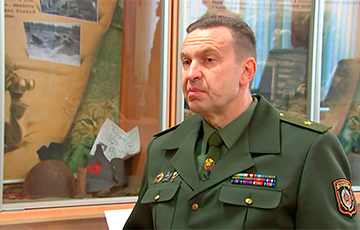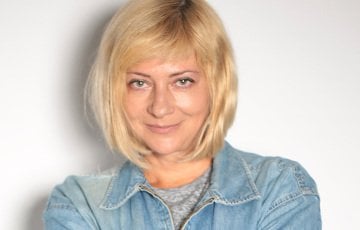Investigative Journalists Accused Karpenkov Of Covering Drug Trafficking And Bribes
14- 24.06.2025, 12:21
- 18,192

Lukaszyst received a bribe of up to $110,000.
The current deputy minister of the Interior Ministry, Nikolai Karpenkov, when he was chief narcotics controller, covered up opium traffickers and received bribes of up to $110,000.
This is revealed in another investigation by journalists from "The Bureau", who gained access to 80 volumes of the criminal case. It allowed Karpenkov's career to take off, even though the case file shows that police officers and drug control leaders themselves covered up for the traffickers, having material benefits from them.
How it all began
Before joining the SBOPiK, Nikolai Karpenkov headed drug control and actively fought against contaminated poppy seeds - bubkas, which could be used to produce opium.
But the seeds themselves were not considered a drug, and therefore criminal prosecution was impossible. In 2014, Karpenkov pushed through the so-called "anti-poppy" decree, which tightened the rules of poppy trade, but did not provide for criminal liability - the UN convention prohibited it.
But by that time, the popularity of boubki had already declined, giving way to synthetic drugs. Nevertheless, the rapid activity that had unfolded allowed Karpenkov to sit down in the chair of the head of the State Department of Drug Control and Prevention.
Poppy Mountain
In 2016, Karpenkov initiated the so-called "poppy case". Forty people were detained. But they could not be tried under criminal articles. However, this did not stop the GUBOPiK, the criminal case was initiated. For the sake of this, law enforcers and courts made tacit agreements.
The approach to expertise was changed. The defendants were united into a so-called "criminal group," although these people did not know each other and were retail drug dealers.
Investigator Igor Prokhorenkov, who is close to the State Department for the Prevention of Drug Trafficking, was assigned to lead the case. "The Bureau" reached him, but he hung up on him.
The most interesting part began. During interrogations, the defendants began to talk about the law enforcers' protection of the business - something Karpenkov had not foreseen.
How the scheme looked and who was involved in it
Karpenkov's key accomplices in the "poppy case" were current and former police officers. Retired investigator Anatoly Mazulenya, according to the testimony of the accused, "covered" the drug trade: over six years, he received about 350,000 dollars, some of which he gave to the law enforcers.
He also helped with the customs clearance of bouboks and eliminated competitors by leaking information about them to the police. Despite this, Mazulenya was not prosecuted: he was not even bugged, and he spent only three days in the pre-trial detention center.
"Bureau" called Anatoly Mazulenya to question him, but he became hysterical and threatened journalists:
"I'm coming and writing a harassment report against you! About how you got this information about me and what right you have, on the basis of what article of the Constitution, to call me and invade my privacy! I don't talk to anyone on the phone, not to any morons!"
When they tried to contact him a second time, he insulted the Bureau reporter:
"You stinking sheep! I've worked my years honestly! Why are you calling?! I took the money! I'll find you, you sheep, and strangle you!"
Muddy accounting
Bureau investigators, studying the volumes of the case, found serious discrepancies in the financial calculations of the investigation into the "poppy case".
According to interrogations and wiretaps, the accused drug traffickers earned thousands of dollars a month, went on vacation abroad, and gave more than $475,000 to the law enforcers for a "roof" for six years.
But these amounts do not appear in the case file. The investigation estimated that all the defendants together earned only 268,000 rubles (about $143,000).
Mysterious Investigation
The Bureau concludes that the investigation into the poppy case was biased. The defendants' testimonies about "roofing" on the part of the police, including at the time when Karpenkov was in charge of drug control, were completely ignored.
Investigator Prokhorenkov, who is affiliated with the State Department for Drug Control, did not conduct any checks or interrogations of law enforcers. There are no materials about bribes in the case, and the Main Department of Internal Security of the Ministry of Internal Affairs stated that it was "not their competence".
The investigation relied on the testimonies of drug dealers about their own crimes, but ignored their own words about corruption.
One of the defendants directly claimed that Karpenkov personally received a bribe - up to $110,000, but no checks were conducted against him either.
As a result of the "poppy case" 29 people were convicted.











